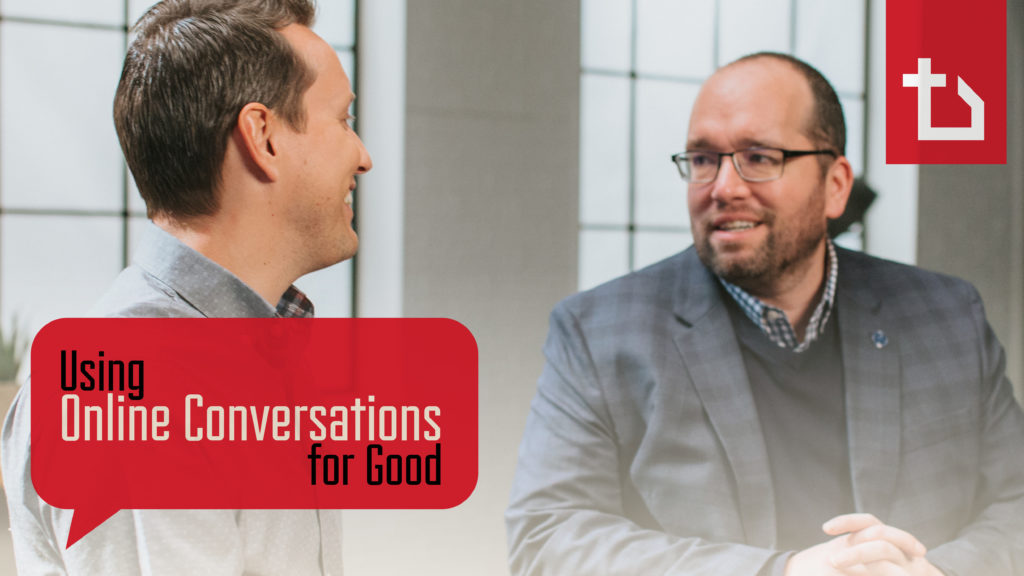
Words and information can be spread around the world in an instant. The adage that a lie travels faster than truth has never been more apparent. For Christians, this fact presents both an incredible opportunity and an important quandary. With the click of a button, the gospel can reach millions, but so can heresy, slander or even a mistaken, bumbling phrase.
To serve pastors and Christians in this challenging era, the North American Mission Board (NAMB) and Send Network partnered with Dan Darling, author of A Way with Words, to create a free web course at NewChurches.com called “Using Online Conversations for Good,” which is the subtitle of Darling’s book.
“I am excited to work with NAMB and Send Network to help equip pastors and church leaders to engage social media in a redemptive way,” said Darling, who is the director of the Land Center for Cultural Engagement at Southwestern Baptist Theological Seminary. “We’ve seen in the last few years how social media has the power for both good and evil, and it’s important for leaders to understand how to lead in this digital age but also to help disciple their people how to live in a digital age.”
The course meets a need by providing answers to questions about the value and strategy for online behavior.
“A lot of pastors and ministry leaders are concerned about social media engagement. They ask about what their presence should be online and how they interact with people,” said Trevin Wax, NAMB’s vice president of research and resource development. “There are concerns about how to address those issues with members in their congregations who perhaps betray their Christian witness online.
“Dan Darling is someone who has been a model of charitable online behavior over the years. So, we wanted to share his wisdom and allow him to lead people through the book he has written on the subject.”
The fact that God spoke Creation into being and that Jesus, the Son of God, is revealed in scripture as “the Word” in John’s gospel underscores the power of words. In the course, Darling walks through the myriad passages in scripture that speak to the believer’s need to understand the significance of their words and to use them wisely.
In the act of creation, words carried a clear, demonstrable power, but when humanity ushered the world into a state of sinfulness following the Fall, words did not lose their power. Instead, they gained the capacity for destruction.
“After humanity’s fall into sin, words can now be used to either injure or inspire,” Darling says in the course’s introductory video. “In a fallen world, we don’t often even understand the weight of what we say or, in this age, what we type or tap on our phones.”
The key feature of the web-based course is its exposition of what the Bible says about how Christians can and should use their words, as well as Darling’s practical applications of those biblical principles to contemporary challenges in online communication.
“It has been said that a church’s website is the new front door to the church,” Darling said, “but increasingly the social media presence of pastors is where people first look to get a sense of a church’s mission and ideas. That’s why it’s important for leaders to engage and engage well.”
For new church plants, that digital front door is a primary tool for building relationships in a community lacking strong gospel presence.
Pastors and Christian leaders may be tempted to avoid online communication altogether given the obvious pitfalls, but when used with biblical wisdom, the use of online platforms will also generate opportunities for gospel proclamation.
“The Church has always wrestled with technology throughout her 2,000-year history,” Darling said. “We need to see how technology is both an act of creation and can also be corrupted by the Fall. I hope this series helps equip and provoke important conversations.”
Darling’s course, along with a growing catalog of others, can be accessed free of charge on NewChurches.com, a site powered by NAMB’s Send Network and designed to resource church planters and pastors.
(EDITOR’S NOTE – Brandon Elrod writes for the North American Mission Board.)

